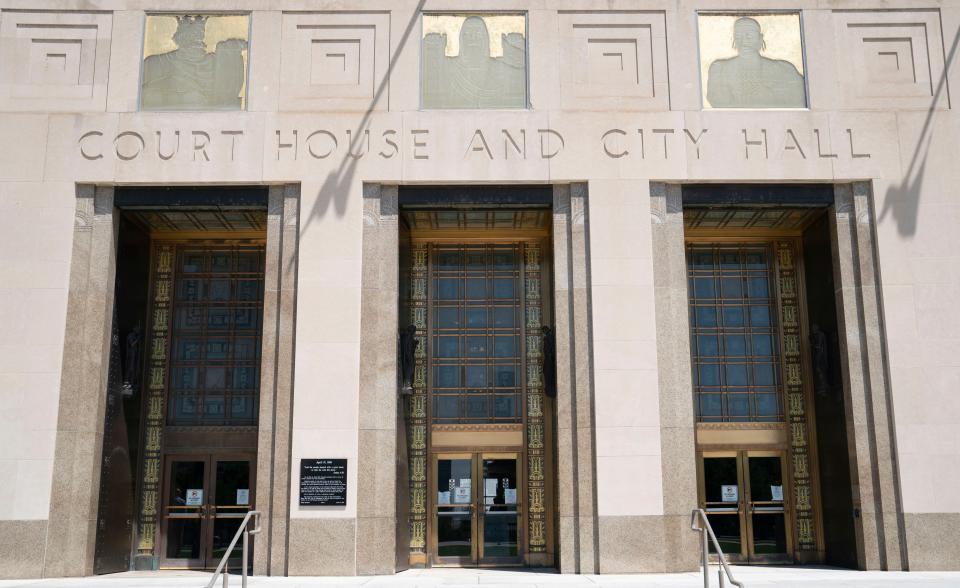Where does Nashville's money come from and where does it go? The budget explained in 5 charts

Nashville passed a $2.9 billion budget for fiscal year 2023 last week.
Here's a breakdown of where that money comes from, where it's going and the state of Nashville's emergency reserves.
How Nashville spends its money
Nashville's schools receive the lion's share of the city's operating budget at nearly 38%.
Fiscal year 2023's budget drew on Metro's emergency reserve funds to fill a $22.6 million school funding gap and provide $5 million in bonuses to bring schools support staff closer to a "living wage."
The next-largest allocation for public safety — including law enforcement, the justice system and fire protection — makes up about 20% of the budget.
About 13.8% of Metro's budget goes toward debt service.
Where Nashville's money comes from
More than half of Nashville's revenue comes from property taxes, with local sales tax making up about 20% of revenue for fiscal year 2023.
The budget has an estimated combined tax rate of $3.252 per $100 of assessed value — lower than other major cities in Tennessee:
Chattanooga/Hamilton County: $4.487 per $100 of assessed value
Knoxville/Knox County: $4.584 per $100 of assessed value
Memphis/Shelby County: $6.163 per $100 of assessed value
Included in this year's budget is $14 million redirected from Metro's emergency reserve funds to cover one-time costs. These reserves, known as the "fund balance," cannot be used to pay for recurring costs.
Nashville doesn't meet emergency reserve best practices
Metro Finance Director Kelly Flannery said this budget "shook the couch cushions" to fill $15.1 million of the MNPS funding gap caused by a $22.6 million drop in state contributions.
Metro Council's budget relies on using $14 million in emergency reserve funds to:
bridge the MNPS funding gap
provide $5 million in one-time bonuses to MNPS support staff
fund pre-hire health screenings for law enforcement
fund a $200,000 study of Metro's Nissan Stadium obligations
Flannery urged Council members not to deplete the fund balance, which without the deductions made in this year's budget would need an additional $56.3 million to meet "best practice" standards.
At-large Metro Council member Bob Mendes, a former chair of the Budget and Finance Committee, told his colleagues Tuesday there are fiscally prudent ways to fund priorities like MNPS support staff bonuses, including reducing new positions or changing the tax rate. The fund balance, he said, shouldn't be treated as a "piggy bank."
"We're absolutely making the choice to live beyond our means and betting that revenue is going to outperform the budget," Mendes said.
Spending in Nashville over time
Nashville's debt service and revenue over time
Cassandra Stephenson covers Metro government for The Tennessean. Reach her at ckstephenson@tennessean.com. Follow Cassandra on Twitter at @CStephenson731.
This article originally appeared on Nashville Tennessean: Nashville's $2.9B budget explained in 5 charts
